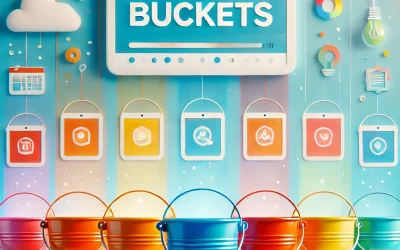Over the course of my career I have been fortune to meet some incredible people and learn some interesting things. These have been both dramatic new approaches to my work and small insights that provide a different lens to look at a problem through.
When I learn these new insights I like to share them. This is the way we push knowledge forward: we share, discuss, and remix it in different ways. I have benefited from the sharing of others, so I feel I should do the same.
Therein lies a dilemma though: what is the best medium for transmitting thoughts? Do we blog? Use social media? Podcasting? Video? Presentations? How do we best present content for (a) wider consumption, (b) effectively delivering the message, and (c) simple sharing?
# Back of the Napkin
In exploring this I did a little back of the napkin research. I ask a range of people where they generally like to consume media and what kind of media formats they are most likely to actually use.
The response was fairly consistent. Most of us seem to discover material on social media these days and while video is considered an enjoyable experience if done well, most people tend to consume content by reading. There were various reasons shared for this:
* It is quicker to read a blog post than watch a video.
* I can’t watch video at work, on my commute, etc.
* It is easier to recap key points in an article.
* I can’t share salient points in a video very easily.
While I was [initially attracted to the notion](https://plus.google.com/+JonoBaconProfile/posts/a6p919RuzbG) of sharing some of these thoughts in an audio format, I have decided to focus instead more on writing. This was partially informed by my back of the napkin research, but also in thinking about how we best present thoughts.
# Doing Your Thinking
I recently read online (my apologies, I forget the source) an argument that social media is making us lazy: essentially, that we tend to blast out thoughts on Twitter as it is quick and easy, as opposed to sitting down and presenting a cogent articulation of a position or idea.
This resonated with me. Yesterday at a conference, [Jeff Atwood](https://www.codinghorror.com) shared an interesting point:
> “The best way to learn is to teach.”
This is a subtle but important point. The articulation and presentation of information is not just important for the reader, but for the author as well.
While I want to share the things I have learned, I also (rather selfishly) want to get better at those things and how I articulate and evolve those ideas in the future.
As such, it became clear that blogging is the best solution for me. It provides the best user interface for me to articulate and structure my thoughts (a text editor), it is easily consumable, easily shareable, and easily searchable on Google.
So, regular readers may notice that [jonobacon.com](https://www.jonobacon.com) has been spruced up a little. Specifically, my [blog](https://www.jonobacon.com/blog) has been tuned quite a bit to be more readable, easier to participate in, and easier to share the content with.
I am not finished with the changes, but my goal is to regularly write and share content that may be useful for my readers. You can keep up to date with new articles by following me on either [Twitter](https://twitter.com/jonobacon), [Facebook](https://facebook.com/jonobacon), or [Google+](https://plus.google.com/u/1/+JonoBaconProfile). As is with life, the cadence of this will vary, but I hope you will hop into the articles and share your thoughts and join the conversation.








